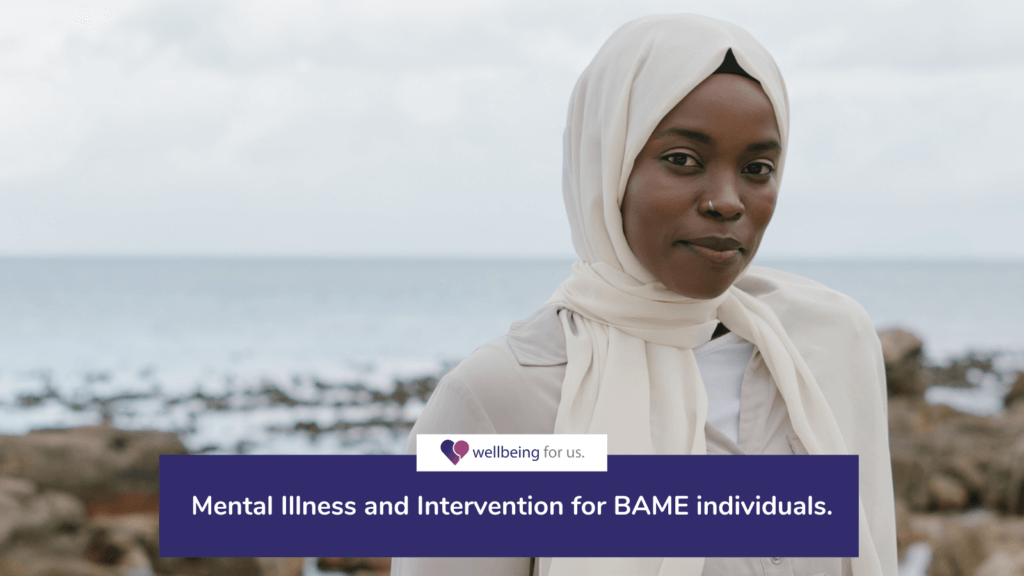
Mental Illness and Intervention for BAME Individuals
The Issue
Research has shown that Black, Asian and minority ethnic (BAME) individuals have a higher risk of developing mental illness compared to their white counterparts, especially since the beginning of the Covid-19 pandemic (Proto, E., & Quintana-Domeque, C., 2020). This vulnerability can be heightened further by carrying multiple marginalised identities such as being a sexual or gender minority in addition to belonging to an ethnic minority group (Rehman et al. 2021). This is known as intersectionality which both makes mental illness more likely due to layers of marginalisation and can also create more barriers to discussing mental health and accessing professional help. Unfortunately, there are several issues with mainstream mental healthcare services in terms of appropriately and effectively accommodating for BAME individuals. Research on NHS mental health services has shown that:
Mainstream services often do not understand the nuances of BAME culture:
- For example, the pressures and expectations from family to succeed in education, stemming from cultural belief systems (Arday 2018). Awareness of these pressures is key to understanding and addressing some of the causal factors behind mental illness for BAME individuals.

Culture clashes between client and therapist:
Therapists are in a position of power and responsibility, which can often lead to a power relationship between client and therapist (Arday 2018). From this, discrimination, stereotyping and microaggressions towards the client become common, often done unconsciously. This can make the client feel belittled and neglected, often worsening their already fragile mental state. Cultural understandings of mental illness are also likely to make diagnosis difficult as some symptoms of mental illness may not be seen as such in non-western cultures. For example, in some African cultures, hallucinations are not a sign of mental illness and are often seen as positive spiritual experiences, whereas western diagnostic manuals see hallucinations as a symptom of schizophrenia. Differences like these can make diagnosis and intervention difficult. These factors have understandably led to a desire for a therapist or counsellor from the same ethnic background, language, and culture as there is evidently a lack of diversity in service providers, an issue that needs to be addressed.

The Wellbeing for Us Solution
- Our online care helps to reduce the power relationship experienced in services as it removes the practice environment can be intimidating and impersonal.
- We have a diverse group of advisors from a variety of backgrounds, cultures and languages who are educated on and experienced with BAME clients. We also offer the client a choice to be matched with an advisor from a similar background to themselves.
- The workshops and group support we offer creates a space where we can bring those from similar ethnic and cultural backgrounds together to discuss their mental health. Seeing another individual from a similar background who is willing to open up about their mental health can be very empowering and key in recovery, especially in cultures where discussion of mental health is not encouraged, and mental illness is stigmatised.
References:
Proto, E., & Quintana-Domeque, C. (2020). COVID-19 and Mental Health Deterioration among BAME Groups in the UK.
Rehman, Z., Jaspal, R., & Fish, J. (2021). Service Provider Perspectives of Minority Stress among Black, Asian and Minority Ethnic Lesbian, Gay and Bisexual People in the UK. Journal of homosexuality, 68(14), 2551–2573. https://doi.org/10.1080/00918369.2020.1804256
Arday, J. (2018). Understanding mental health: what are the issues for black and ethnic minority students at university?. Social Sciences, 7(10), 196.
